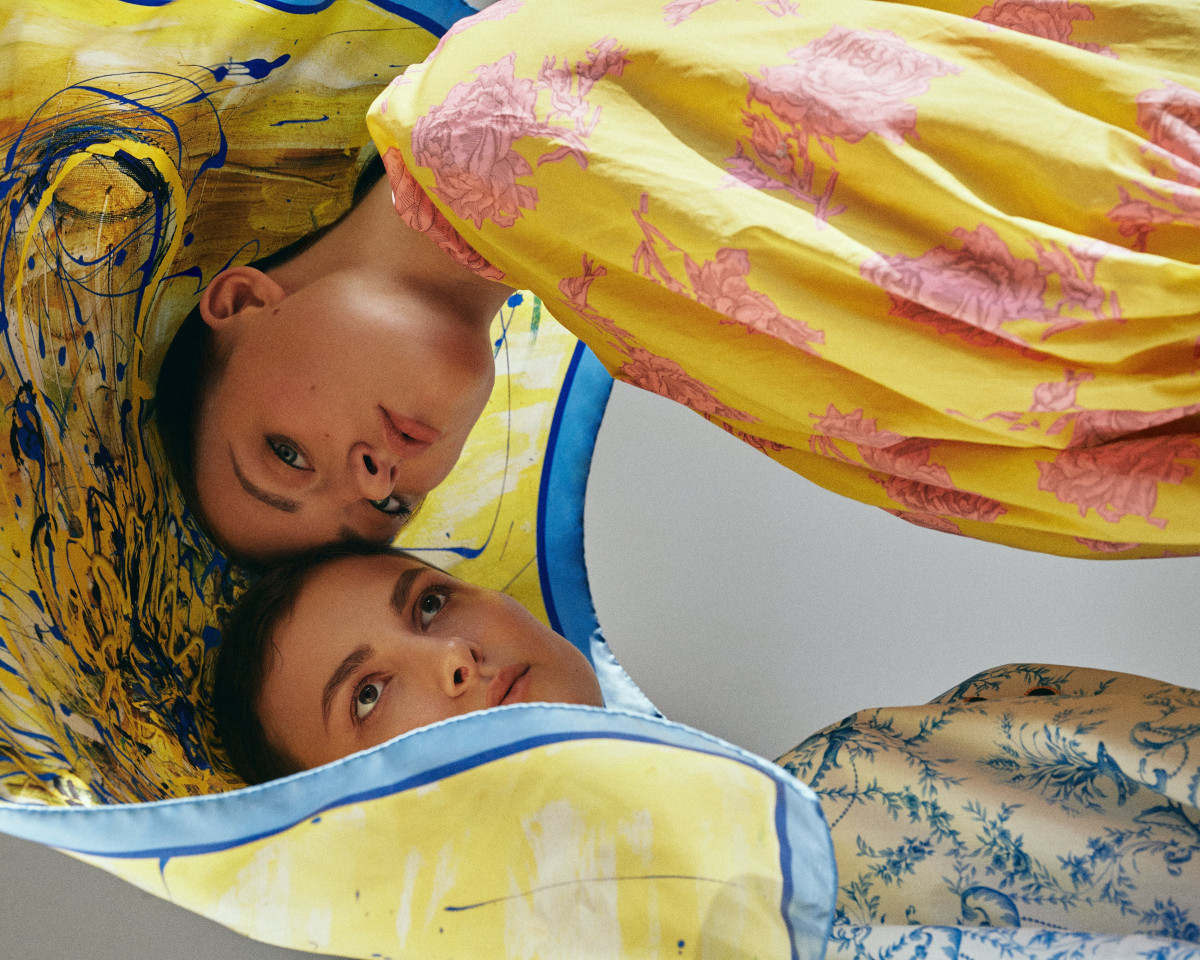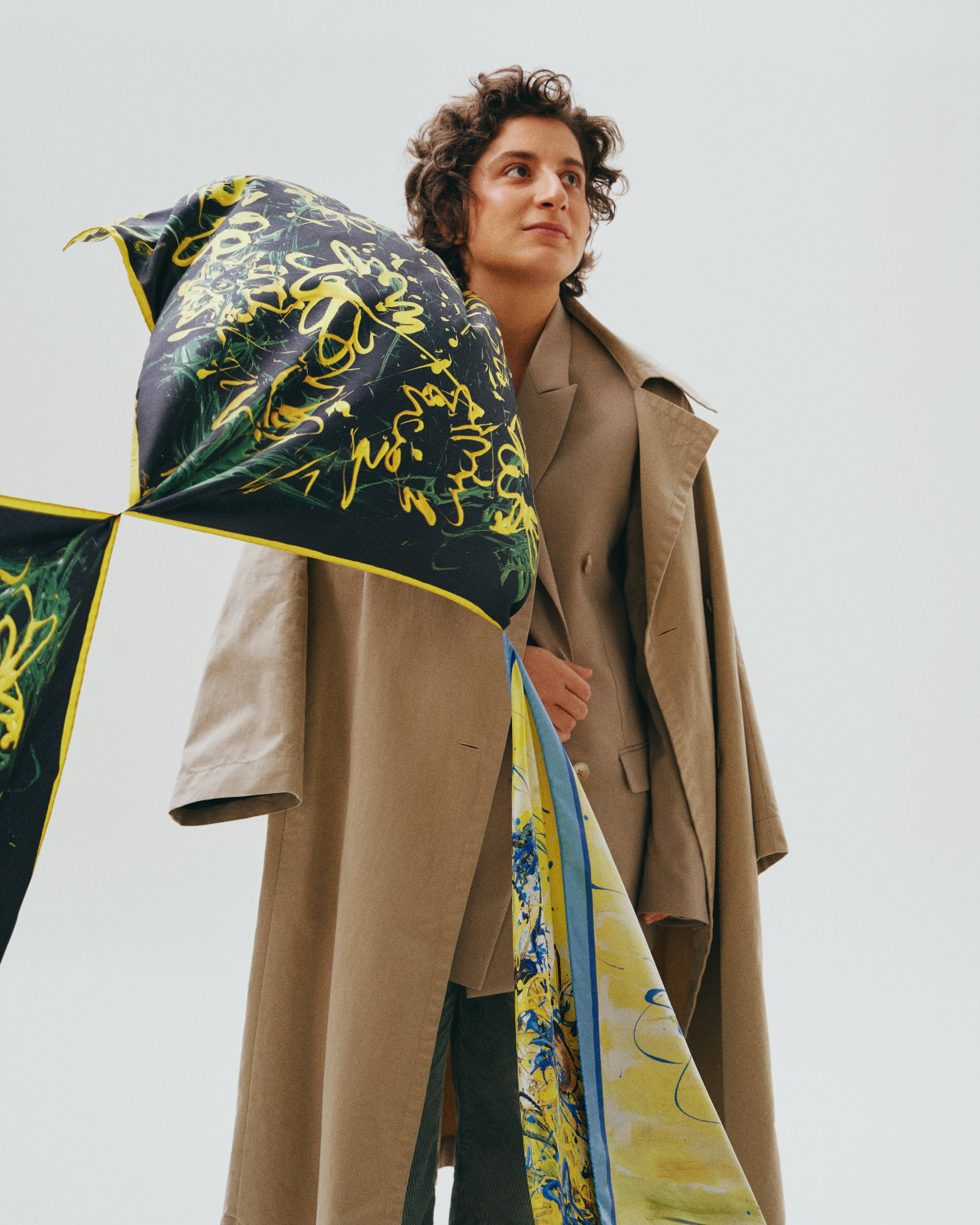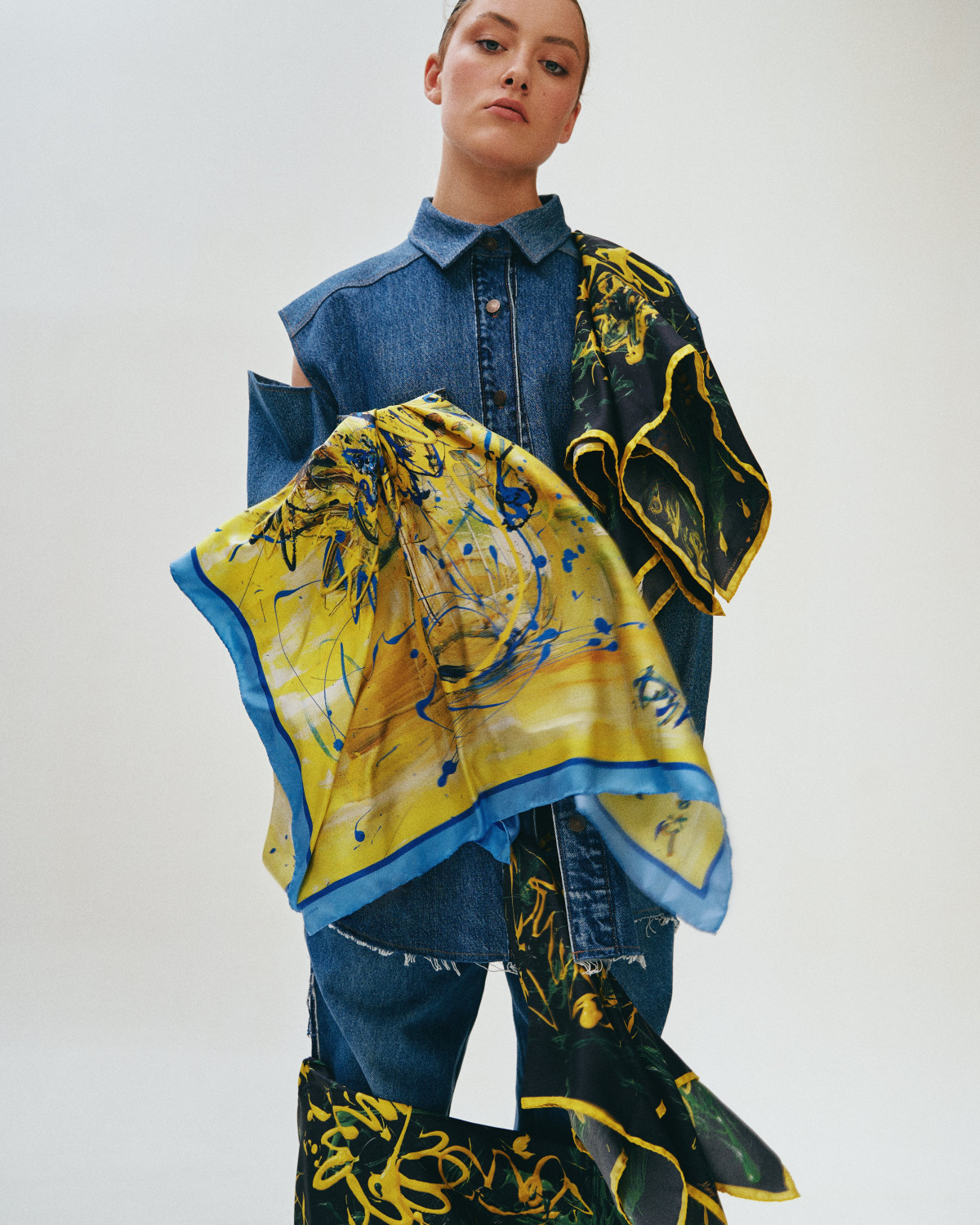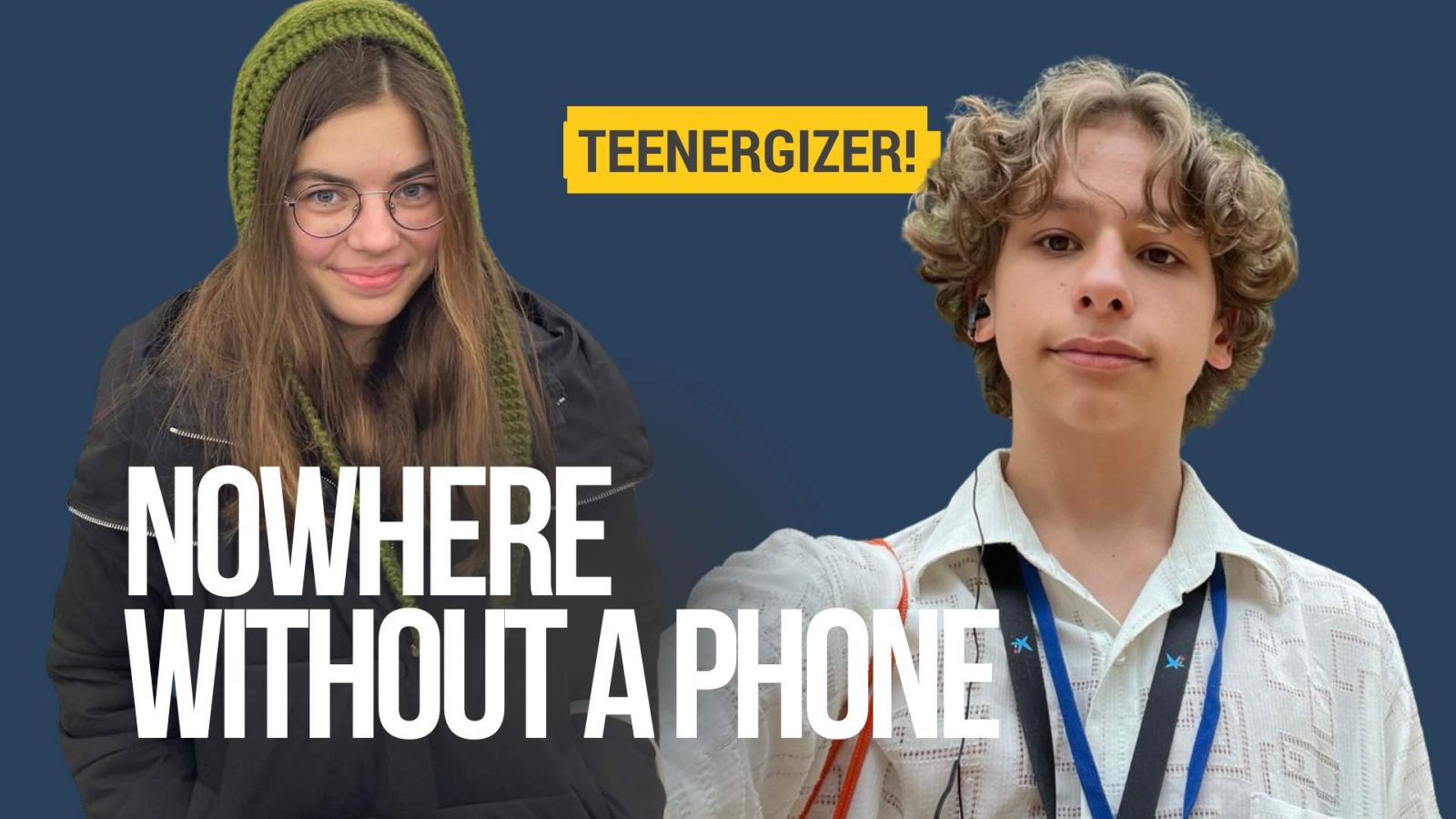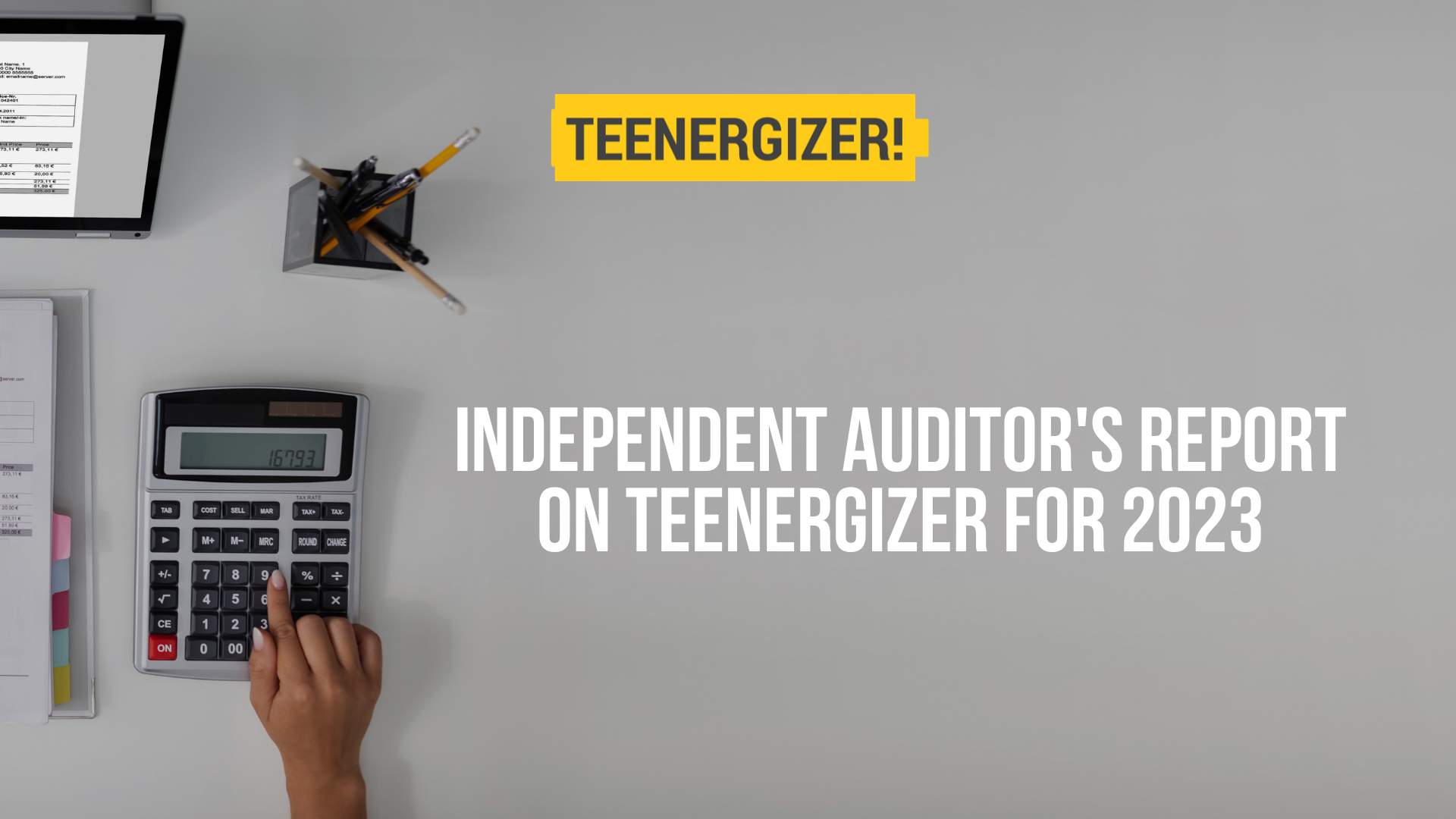Life with a + sign
Yana Panfilova, Liza Shevchuk and Mariia Deriuha for the Charity Initiative of the Olena Pinchuk Foundation X Aspinal of London
AUTHOR: SVITLANA KRAVCHENKO
Photo: ELLE
Recently, the Olena Pinchuk Foundation and the British brand Aspinal of London presented a charity collaboration, the main purpose of which is to raise funds to support the Foundation’s project “Mobile clinics for HIV-positive children”. Since 2009, the organization has been caring for children born and living with HIV infection in Ukraine, and with the beginning of the full-scale russian invasion they need medical care even more. Many of them became internally displaced persons — they lost not only their native homes, access to education, but also access to qualified medical care. The collection, which can be purchased via the link, includes leather keyrings in the shape of an Easter bunny and a sunflower, as well as silk scarves.
The creative director of the Aspinal of London brand, Ukrainian by origin, Mariya Dykalo, used her paintings with Ukrainian motifs for prints.
“The Olena Pinchuk Foundation has done so much to raise awareness of HIV and AIDS in Ukraine. The support that they have provided for women and children is invaluable and their work is even more vital now as the country is torn apart by war. It is our hope that this initiative will encourage others to become involved in relief efforts and support the Ukrainian people during this challenging period.” – says Mariya Dykalo.
The first accessories from the charity collection were tried on by three girls who were born with HIV.
Photo: ELLE
Yana Panfilova, Lisa Shevchuk and Mariia Deriuha went through bullying, loss of loved ones and search for new meanings. However, today they know for sure that life with status can be full and happy, it is only necessary to take responsibility for it in your own hands in time.
Mariia Deriuha,
cook, 19 years old
Photo: ELLE
I found out that I was HIV-positive at the age of eight, and realized what it was when I was around twelve. I got the status from my mother, who was also positive but discovered it during pregnancy. She said that the surgeon who performed her caesarean section persuaded her to get rid of the child in the sixth month.
I have been receiving therapy all my conscious life. As a child, it was difficult for me: I did not gain weight for a long time, so I could not take pills and had to drink tasteless syrup. It is usually not liked by children, but it is a necessary procedure.
I have not disclosed my status to anyone in my life, not even to my relatives. Only other HIV-positive people with whom I communicate know. Why so? There was simply no serious need. If asked, I would answer. For example, I told foreign journalists who came to us in March last year, when our house in Chernihiv burned down.
In my opinion, the situation with awareness of HIV and AIDS in our country is already better, but it is still not enough for a person to be able to openly talk about his/her status and society to react calmly about it. They talk about it in schools, but somehow, it’s as if it will never happen to anyone. Like “you’d better remember some information, but you won’t need it.” And the fact that there are such people, that there are many of them – for some reason they don’t talk about it. It is necessary to explain that it is possible to live fully with HIV, it is possible to give birth to healthy children. It’s like diabetes, not something worse.
If you have just learned about your positive status, try from the first moment to tune in to believe in the best. There will definitely be people who will support. There will be strength for life and struggle. HIV should not be perceived as an obstacle on the way to your dreams and heights.
Now I work as a cook, but I plan to pass the tests and study further. I wanted to become a designer, but my drawing is not skillful enough, or a doctor, although, unfortunately, I am afraid of blood. Therefore, I am currently considering the option of military psychology.
I sometimes think that if I didn’t have HIV, my life wouldn’t be so interesting. I have visited many camps and conferences, I have many friends and acquaintances with status, I am a member of the organization “Positive Women”, and I participate in volunteer projects in Chernihiv. I am surrounded by brave and lively people. I want to be like that too.
“In schools they talk about HIV as if it would never happen to anyone.”
Yana Panfilova,
founder of Teenergizer, 25 years old
Photo: ELLE
I learned about my status at the age of ten, when AIDS manifested itself. Mom prepared for this moment for a long time, studied the experience of other countries. She came up with a plan: send me to Switzerland to a camp for a hundred HIV-positive children, and before that, tell me the truth on the plane. But the day before I got chickenpox, so the idea of the camp was postponed. Instead, the two of us flew to another country, where a frank conversation took place. All I knew about HIV from school was that Freddie Mercury died from it, so I thought I would die too, and I was very scared. Almost immediately I started taking anti-HIV pills because my lymph nodes were very enlarged, and my immunity was low. I was regularly taken to Truskavets for rehabilitation. Mom believed that “Naftusia” water could cure AIDS. Immunity was strengthened, but AIDS, of course, remained.
One of the unpleasant cases happened to me in the eleventh grade, when I came to a classmate’s house, and her grandmother decided to fumble in my pockets and found the pills I was taking against HIV. She thought it was drugs, and when it came out, she yelled at my mom why we hadn’t warned them, and then told the whole school about my status. At a certain point, I realized that HIV is a great filter for people on their adequacy and understanding, because very often it highlights not so much my problem as the problems of others. When they are unable to understand and read the information and my illness becomes an obstacle for them, then we are not friends. Disclosure of status is an important step towards tolerance. But I must admit, I am a person who may not notice discrimination against me. It happened that they didn’t want to drink from the same bottle with me, and I was already told about this by those who paid attention to it at that moment, but I didn’t. It’s all about ignorance. HIV is a completely different story now than it was 40 years ago. There is large number of other no less serious diseases, but HIV-positive people are the most stigmatized in society.
In 2021, I went to the USA, where I gave a speech on behalf of 38 million HIV-positive people at the high-level meeting of the UN General Assembly dedicated to HIV and AIDS. In the presence of heads of state, ministers, ambassadors and the leadership of the organization, I said that we do not dream of waking up one morning in a fantastic world free from stigma and discrimination; that over a billion young people are ready to take responsibility and work every day, but we cannot do it alone. So, we urge you to step forward and finally do your part. I also appealed to US President John Biden as a world leader who can influence the containment of the epidemic across the planet. At the end of the meeting, US Secretary of State Anthony Blinken mentioned me in his statement — a breakthrough for the visibility of young people living with HIV.
Together with my HIV-positive friends, with whom I went to a support group as a child, and school friends, we created the first Teenergizer organization in Ukraine, Eastern Europe and Central Asia. We took to the streets and into conference rooms to change laws and policies. We fought for confidentiality in the relationship between adolescents and doctors, for sexual and reproductive health, for rights and comprehensive sex education. We raised the topic of youth mental health at the highest level in Ukraine. We demanded that we be heard, because without us they should not make decisions about us. During the year of the great war, we noticed how the requests of teenagers changed, in particular, panic attacks and suicidal moods became more frequent. Someone’s parents went to the front, someone’s lost their job… In order to support the largest possible number of such people, we have already provided more than 16 thousand psychological consultations, and by the end of 2023 we want to increase their number to 50 thousand and above.
“HIV is a great filter for people on their adequacy and understanding.”
Liza Shevchuk,
clothes saleswoman, 19 years old
Photo: ELLE
I learned about my status at the age of nine from my mother. Due to the fact that she approached it consistently, I did not have shock and fear. I understood that it was like the flu, but it is with me for a long time. I recognized and reconciled. My mother advised me to tell others only when I felt ready. I remember how in the eighth or ninth grade we went through one paragraph about HIV in class (the only one in all the years of study). I answered very well at the blackboard, after which the teacher wondered how I knew the subject so deeply. But then a nurse came to the class to ask me out of class so that I would sign a certificate that I had HIV. It was a violation of medical confidentiality. The teachers, a certain group of children found out about me. I don’t know what that nurse was guided by, but I was shocked by her action. I lived closed for about six years. Then I wrote a post on Instagram, which immediately gathered a large number of likes and comments with support. There, I said that there is no need to be afraid, you should only take care of your health. In addition, you can also self-develop in this area: you will talk about your status, you will be noticed and called to some organization. That’s how Yana Panfilova noticed me — and I joined Teenergizer.
When getting acquainted, I immediately say frankly: “Hi, I’m Lisa, and I have HIV.” On the one hand, I am interested in watching people’s reactions, and on the other hand, I feel the need to share information that I know. You can say that I am even glad that I have this status. When I first learned about it, I was called to a children’s camp in the Carpathians. There I met other HIV-infected children who became my best friends.
Unfortunately, I had to grow up very early. I am an orphan; I have lived alone since I was fifteen. Mom used drugs all the time, as a result of which she became infected with HIV, and later cirrhosis of the liver. Unfortunately, she passed away at the age of 37. Dad also used drugs: he died when I was only one year old. My uncle also died for the same reason. One grandmother in my family did not use anything and categorically condemned my mother. She even persuaded her not to take me from the maternity hospital. And when I lived with her, she bullied me and constantly beat me, saying that HIV shames our family. I had a very difficult relationship with my grandmother. But my mother was everything to me. And, although she did not live with me, she came from Kyiv every week, brought food and money, tried to take care of me. I would never call her an addict; she was just a person in the system. I suffered this loss very hard, even dyed my hair black, like hers. I try to hold on, I understand that I have to live on. God willing, the war will end, and I will go to study psychology.
I was registered since birth, I just didn’t know about it. I remember being told that the syrup that had to be drunk was like “from the liver.” Of course, I had certain suspicions – I saw my mother injecting herself with drugs. But she kept silent about this until the end. Since then, I have been taking pills every day strictly at specific time (because our body renews itself and works strictly according to a timer), thanks to which I live a full life. I advise everyone who just found out about their status not to be afraid and not to panic. The first thing you should not do is go to Google: there can be written both the truth and outright delusion. I recommend you address to a medical facility immediately, get registered: your family doctor will tell you everything. It is important to understand: HIV is not transmitted through a handshake, a kiss or through the air. People with HIV live full lives even up to 100 years. You will not die if you follow the therapy regimen and take tests on time. It seems to me that our society, especially the youth, already has a deeper understanding of this issue. Because when I now come to a nail salon and openly talk about my status, the masters are no longer afraid. Of course, the older generation still has certain stereotypes, but there is progress.
“My grandmother bullied me the most. She said that HIV shames our family.”
STRUGGLE ON SEVERAL FRONTS
The situation with HIV and AIDS could be significantly improved if women found out about their positive status as early as possible, than during pregnancy or already in the process of childbirth, – Olena Stryzhak, head of the “Positive Women” organization, is confident: “We strive to appear in Ukraine the culture of testing. So that for girls who are just starting their sexual life, it was the same manifestation of care for their health as a visit to the dentist or gynecologist. It would be much better if a woman could identify HIV in time, start treatment and only then plan motherhood.”
Olena knows what she is talking about. She found out about her status when she was carrying her firstborn. Fortunately, both of her children were born with a negative status, and the woman does not hide that this fact motivated her to do everything possible in the future so that such a situation would become the norm for our society rather than the exception. If you do not learn about HIV in time and do not take preventive measures, the vertical transmission of the status from mother to child can reach 30%. But under the conditions of counteraction to this – taking antiretroviral therapy, artificial feeding of a newborn child (if regular diagnostics is not available) – this percentage drops to zero. “In 2021, we approached 1.6%. And this was our super achievement, which must be preserved, because nowadays women give birth in basements, without medical care and funds for infant formula.”
POSITIVE CHILDHOOD
Volodymyr Zhovnir, director of the National specialized children’s hospital “Ohmatdyt”, notes that many children left Donetsk, Luhansk, and Kherson regions due to hostilities, and that is the reason why their number has increased in other regions — Lviv, Kyiv, and Poltava. During the year of the war, the number of HIV-positive young children increased because of the late registration of HIV-positive women and the impossibility of their examination. “The most difficult cases are those of late detection of children aged 0-13 years in a very serious condition. From the beginning of 2023, out of 60 children who arrived at the department, fifteen were diagnosed with HIV infection in the AIDS stage.”
“HIV-positive people receiving therapy cannot infect others, even during pregnancy and childbirth,” emphasizes Volodymyr Zhovnir.
Read more on ELLE.ua


